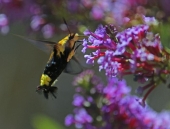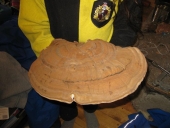
 2
2




There is something that I do not know, the knowing of which can change EVERYTHING!!!
 1
1





Action Helps...One Soul with Courage is a Majority. Success is a Journey, not a Destination See the Reaching! A Pessimist Sees the Difficulty in Every Opportunity...an Optimist Sees the Opportunity in Every Difficulty! -Whispers of Eden
 1
1




 3
3





"We're all just walking each other home." -Ram Dass
"Be a lamp, or a lifeboat, or a ladder."-Rumi
"It's all one song!" -Neil Young






 1
1




 When we first moved here, we also had a massive amount of ticks...being bit on the elevated front porch within a minute of going out the door. We picked up about a dozen roosters and things have gotten better, but, they are still abundant as well.
When we first moved here, we also had a massive amount of ticks...being bit on the elevated front porch within a minute of going out the door. We picked up about a dozen roosters and things have gotten better, but, they are still abundant as well.Action Helps...One Soul with Courage is a Majority. Success is a Journey, not a Destination See the Reaching! A Pessimist Sees the Difficulty in Every Opportunity...an Optimist Sees the Opportunity in Every Difficulty! -Whispers of Eden
 1
1




Judith Browning wrote:Hello, Josh and welcome to permies! It's good to have more Ozarks folks here

i think we only have chiggers in the mowed lawn....ours lawn area gets smaller each year as we let more grow up and plant other things. Even so over a wet summer they are bad and especially in newly mown grass. We have put a lot of faith in two guineas to eat ticks and maybe some chiggers this year.
edit to add...I think diet might play a part in how much we are bit...or even one's age. I know that when I was younger, but also eating much more meat and SUGAR, I would pick up chiggers where ever we were...totally raw ankles all summer. This is kind of an 'I don't know' answer??? I guess.
There is something that I do not know, the knowing of which can change EVERYTHING!!!
 1
1




There is something that I do not know, the knowing of which can change EVERYTHING!!!
 1
1




There is something that I do not know, the knowing of which can change EVERYTHING!!!






 2
2




Action Helps...One Soul with Courage is a Majority. Success is a Journey, not a Destination See the Reaching! A Pessimist Sees the Difficulty in Every Opportunity...an Optimist Sees the Opportunity in Every Difficulty! -Whispers of Eden
 1
1










 2
2




Action Helps...One Soul with Courage is a Majority. Success is a Journey, not a Destination See the Reaching! A Pessimist Sees the Difficulty in Every Opportunity...an Optimist Sees the Opportunity in Every Difficulty! -Whispers of Eden
 1
1




If I am not for myself, who will be for me?
If I am only for myself, what am I?
If not now, when?
 3
3




Through a little research I found that Jewelweed(Impatiens capensis) is commonly used to treat bites and stings and such. Although it doesn't kill chiggers, it seems that it does help reduce their effects. This is a plant I haven't tried. Anyone having success with it?
“Action on behalf of life transforms. Because the relationship between self and the world is reciprocal, it is not a question of first getting enlightened or saved and then acting. As we work to heal the earth, the earth heals us.” ~ Robin Wall Kimmerer
 6
6




 3
3




 3
3




 1
1




I want to be 15 again …so I can ruin my life differently.
 2
2




 3
3




 3
3




 7
7




 3
3




Melonie Corder wrote:Has anyone found solutions they use with success? ...
Today I'm trying Sulphur on socks, well oiled hands, wrists and ankles.
 2
2




Anne Miller wrote:I have always used sulfur dusting.
What I have found is sometimes I get some bites because I didn't use the sulfur.
Quite by accident, I found that putting a dab of soap on the bite helps them quit itching and the bite seems to heal faster.
I use just bath soap.
 2
2




Is sulfur good for digestion?
Sulfur contributes to fat digestion and absorption, because it is needed to make bile acids. Sulfur is also a constituent of bones, teeth, and collagen (the protein in connective tissue).
People who took sulfur baths and other spa therapies saw improvements in their strength, had less morning stiffness, had better walking ability, and experienced ...
Invasive plants are Earth's way of insisting we notice her medicines. Stephen Herrod Buhner
Everyone learns what works by learning what doesn't work. Stephen Herrod Buhner
 1
1




Anne Miller wrote:Heather, I put it on my skin and clothes without any ill effects. I don't have sensitive skin so someone with sensitive skin might have side effects.
If it can be taken internally, I see no reason not to use it on the skin.
Is sulfur good for digestion?
Sulfur contributes to fat digestion and absorption, because it is needed to make bile acids. Sulfur is also a constituent of bones, teeth, and collagen (the protein in connective tissue).
@ peacehealth.org
People who took sulfur baths and other spa therapies saw improvements in their strength, had less morning stiffness, had better walking ability, and experienced ...
@ mountsinai.org
This post has a recipe from Mother Earth News:
https://permies.com/t/83618/advice-farm-sitting-grid-acreage#692897
I have not tried that recipe though I have heard that it works.
“Action on behalf of life transforms. Because the relationship between self and the world is reciprocal, it is not a question of first getting enlightened or saved and then acting. As we work to heal the earth, the earth heals us.” ~ Robin Wall Kimmerer
 1
1




Anne Miller wrote:
I have always used sulfur dusting.
What I have found is sometimes I get some bites because I didn't use the sulfur.
Quite by accident, I found that putting a dab of soap on the bite helps them quit itching and the bite seems to heal faster.
I use just bath soap.




Melonie said, "I plan to do this but couldn't find Sulphur powder yesterday
Invasive plants are Earth's way of insisting we notice her medicines. Stephen Herrod Buhner
Everyone learns what works by learning what doesn't work. Stephen Herrod Buhner




Anne Miller wrote:
Melonie said, "I plan to do this but couldn't find Sulphur powder yesterday
Sulfur usually can be found at the big box stores in the Gardening Dept.
“The beautiful thing about learning is that nobody can take it away from you.” – B.B. King
 1
1




 1
1








Lexie Smith wrote:I have always been a chigger magnet and had a couple of infestations so bad that, if my mom hadn’t been a nurse, they would have hospitalized me. As I have aged I get way fewer bites so the diet theory is interesting. I do know that sprinkling sulfur powder around my socks and ankles and sleeves and wrists works very well. Seems like I remember my dad fixing me a bucket with a paint brush in it to apply it whenever I was going to be at risk. The problem was that I was constantly at risk because I lived the hours of daylight ripping around on the horses and playing in the fields. My worst incident was on a blackberry picking expedition with my grandmother and I had bites on every inch of my body, nose, ears and worse. Had nightmares for years…
 2
2




“The beautiful thing about learning is that nobody can take it away from you.” – B.B. King
 2
2




 1
1




aurora sev wrote:I ended up with a bit of land in the south, and im about to break down and wear fishing waders to clear it lol.
After 5 mins of walking around I pulled off nearly one hundred seed ticks, god knows how many chiggers I got in my shoes. Im a bit surprised nobody has figured out how to deal with them, short of a propane torch.
 2
2




 2
2




 3
3





|
And now this tiny ad wants to get married
Learn Permaculture through a little hard work
https://wheaton-labs.com/bootcamp
|


.jpg)

